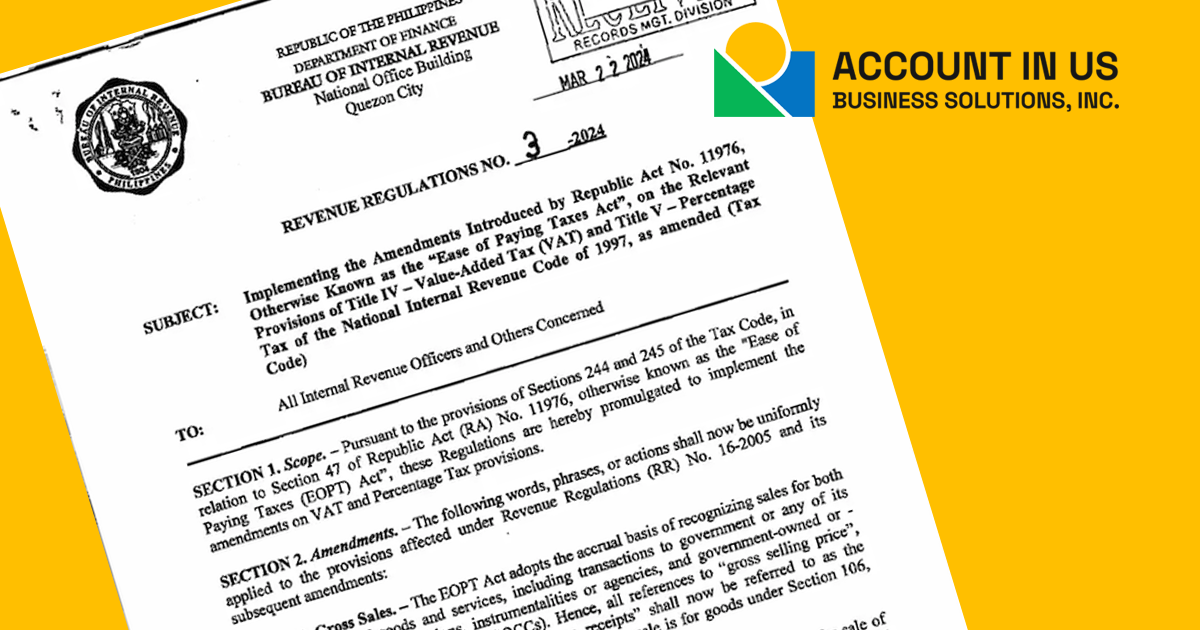De Minimis Benefits in the Philippines: A Guide for Employers and Employees
Key Takeaways:
- De minimis benefits are non-taxable benefits or privileges provided to employees by their employers.
- These benefits are intended to support and promote the health, goodwill, and morale of employees.
- The legal basis for de minimis benefits in the Philippines is found in Section 33(C) of the National Internal Revenue Code (NIRC), as amended by Republic Act No. 10963 or the Tax Reform for Acceleration and Inclusion (TRAIN) Law.
- De minimis benefits are exempt from income tax, withholding tax, and fringe benefit tax, subject to certain conditions and limitations.
What are De Minimis Benefits?
De minimis benefits are facilities and privileges given to employees by their employers that are not subject to income tax and withholding tax on compensation income. They are intended to support and promote the health, goodwill, and morale of employees. The term "de minimis" comes from the Latin phrase "de minimis non curat lex," which means "the law does not concern itself with trifles." In other words, de minimis benefits are relatively of small value.
Legal Basis for De Minimis Benefits
The legal basis for de minimis benefits in the Philippines is found in Section 33(C) of the National Internal Revenue Code (NIRC), as amended by Republic Act No. 10963 or the Tax Reform for Acceleration and Inclusion (TRAIN) Law. This section provides a list of de minimis benefits that are exempt from income tax, withholding tax, and fringe benefit tax, subject to certain conditions and limitations.
List of De Minimis Benefits in the Philippines
Revenue Regulation No. 11-2018 itemized the updated list of De Minimis Benefits not subject to Income tax and Withholding Tax on compensation for all employees regardless of position or employment status:
- Monetized unused vacation leave credits of employees not exceeding ten (10) days during the year
- Monetized value of vacation and sick leave credits paid to government officials and employees
- Medical cash allowance to dependents of employees not exceeding P1,500 per employee per semester or P250 per month
- Rice subsidy of P2,000 or one (1) sack of 50 kg. rice per month amounting to not more than P2,000
- Uniform and clothing allowance not exceeding P6,000 per annum
- Actual medical assistance, e.g. medical allowance to cover medical and healthcare needs, annual medical/executive check-up, maternity assistance, and routine consultations, not exceeding P10,000 per annum
- Laundry allowance not exceeding P300 per month
- Employees achievement awards, e.g., for length of service or safety achievement, which must be in the form of a tangible personal property other than cash or gift certificate, with an annual monetary value not exceeding P10,000 received by the employee under an established written plan which does not discriminate in favor of highly paid employees
- Gifts given during Christmas and major anniversary celebrations not exceeding P5,000 per employee per annum
- Daily meal allowance for overtime work and night/graveyard shift not exceeding twenty-five percent (25%) of the basic minimum wage on a per region basis
- Benefits received by an employee by virtue of a collective bargaining agreement (CBA) and productivity incentive schemes provided that the total annual monetary value received from both CBA and productivity incentive schemes combined do not exceed P10,000 per employee per taxable year
Tax Implications for Employers and Employees
De minimis benefits are beneficial for both employers and employees. Employers can save on taxes and motivate their employees to perform better. Employees can enjoy additional perks and incentives without worrying about paying taxes on them. However, de minimis benefits must be properly documented and reported to avoid any penalties or disputes with the Bureau of Internal Revenue (BIR). Employers should also be aware of the changes in the tax laws and regulations that may affect the treatment of de minimis benefits.
Difference of Fringe Benefit with De Minimis Benefits in the Philippines
Fringe benefit and de minimis benefit are two types of benefits that employers can give to their employees in the Philippines. Fringe benefit is taxable to the employer at 35% FBT, while de minimis benefit is tax-exempt to the employee as long as it does not exceed the limits prescribed by the BIR. Both types of benefits can help employees improve their quality of life and work performance.
Conclusion
Providing de minimis benefits is a way for employers to reward and motivate their employees without incurring too much tax burden. Employees also benefit from these benefits as they receive additional income that is not subject to tax thereby increasing the net take-home pay. However, both parties need to be aware of the types, amounts, and limits of de minimis benefits to avoid any tax issues or penalties.
References:
— National Internal Revenue Code (NIRC), as amended by Republic Act No. 10963 or the Tax Reform for Acceleration and Inclusion (TRAIN) Law.
— Revenue Regulation No. 11-2018.
— Bureau of Internal Revenue (BIR).
Want more information?

Accountinus Business Solutions Inc



